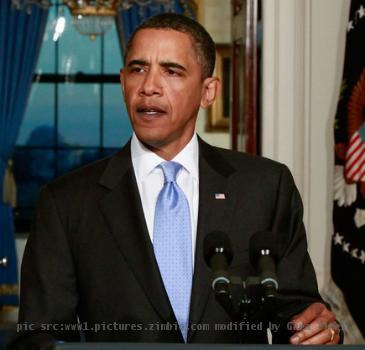Blagojevich on trial: Combative former Illinois governor faces fight of his life
By Sharon Cohen, APSunday, May 30, 2010
Former Ill. governor faces fight of his life
CHICAGO — The day before Rod Blagojevich’s world came crashing down, he stood before the TV cameras confident and defiant, as always, declaring he had nothing to hide, even as a giant political scandal was about to engulf him.
“If anybody wants to tape my conversations, go right ahead,” said the boyish, helmet-haired governor, looking jaunty in a black leather jacket and turtleneck.
As it turns out, the feds had done just that.
The next morning, FBI agents woke him with a phone call, then led him from his house in handcuffs. And so began a bizarre, 18-month melodrama expected to culminate Thursday in Blagojevich’s trial, where he stands accused, among other things, of trying to trade or sell President Barack Obama’s vacant Senate seat — for personal gain.
In the year and a half since his arrest, Rod Blagojevich has lost his job and become a political pariah and a comic punch line. But he’s maintained the bravado that defined him as governor with repeated declarations of innocence that are vintage Blago: Confrontational. In the limelight. Never giving an inch.
“There has always been a damn-the-torpedoes aspect to his personality,” says State Rep. John Fritchey, a friend-turned-critic.
That’s been obvious as the impeached governor has popped up everywhere: Early morning radio, late-night TV. On stage with Second City comic actors lampooning him. At a block party where the avid Elvis fan crooned one of The King’s songs.
And most recently, Blagojevich, now 53, was on “The Celebrity Apprentice,” where he seemed baffled by a computer, and was, for the second time in a year, fired.
“I think people are intrigued by him, fascinated by him,” claims Glenn Selig, his Florida-based publicist.
So is it wise for Blagojevich to be clowning around while facing serious charges?
“I think he has a great sense of humor and he’s willing to laugh at himself,” Selig says. “Self-deprecation is not necessarily a bad thing. He’s the real deal.”
Those who’ve followed Blagojevich’s career have another view.
“His ego won’t allow him to give up the stage,” says Kent Redfield, a professor emeritus of politics at the University of Illinois-Springfield. “He has this supreme confidence in his ability to win people over.”
Blagojevich’s loose-lipped style has some former associates wondering if the ex-governor’s endless patter is designed to show potential jurors he’s full of political bluster, not criminal intent.
Blagojevich has his own explanation.
“I … have this need to tell everyone and anyone who would listen that I didn’t do anything wrong and that I am innocent of any criminal wrongdoing … ,” he wrote in “The Governor.”
Blagojevich maintains he wasn’t trying to sell or trade Obama’s Senate seat and was trying to arrange a deal in which he’d appoint Lisa Madigan, the state’s attorney general. In exchange, her father, House Speaker Michael Madigan, his nemesis, would push through a public works bill the governor wanted.
Both Madigans say that’s news to them.
Blagojevich later appointed Roland Burris, creating a new furor when the newly named senator repeatedly changed his story about his contact with the governor’s friends and aides before he was chosen.
Milorad “Rod” Blagojevich has long regarded himself as a fighter for the little people.
He sees his life as an American dream that unraveled into a tragedy of Shakespearean proportions: The son of a Yugoslav-born steelworker, he was raised in a blue-collar family, attended law school and climbed the political ladder, he says, only to fall victim to betrayal and jealousy.
Blagojevich critics, though, see him as another name in the rogue’s gallery of politicians who’ve polluted state government. His predecessor, George Ryan, is now serving a 6½-year racketeering sentence.
Blagojevich’s political career began with family connections.
His wife, Patti, is the daughter of Richard Mell, one of a fading breed of Chicago Machine ward bosses who can marshal an army of precinct captains and deliver votes on Election Day.
“He would never have gotten out of the dugout into the batter’s box if not for Dick Mell,” says Paul Green, a political scientist professor at Roosevelt University.
Mell tapped his son-in-law for the state legislature. Blagojevich served four years before moving to the U.S. House.
In his first bid gubernatorial bid, Blagojevich showed that beneath that Beatle-bob (circa ‘65) of hair — he always had a hairbrush handy — there was the brain of a shrewd politician with a populist’s touch.
“He’s personable,” Green says. “He speaks well on his feet. He’s good-looking. … And he was able to raise an awful lot of money.”
When Blagojevich was elected in 2002, he already was eyeing a bigger prize: the White House.
Democrats were thrilled to have one of their own in the governor’s chair for the first time in 26 years. But Blagojevich soon made enemies on both sides of the aisle.
“He enjoyed the sexy part of government, the glad-handing, the attention of followers,” says Fritchey, the state lawmaker. “But at a certain point, you’ve got to get out of campaign mode and into governing. That’s where he had difficulty.”
Blagojevich immediately angered folks outside Chicago when he refused to move to the governor’s mansion in Springfield; he says he didn’t want to uproot his two young daughters.
Critics also says he was a fleeting presence in the capital, and when he was around, “his lack of attention to details and his work ethic were mind-boggling,” says state Sen. Kirk Dillard, a veteran Republican lawmaker.
Blagojevich claims in his book that he’s a “big picture” guy who didn’t want to be “slowed down by having to spend my time mired in a bureaucracy that could be like quicksand.”
Tensions grew between lawmakers and the governor.
Once he ordered legislators to Springfield to vote on a transportation bill he wanted, then attended a Chicago Blackhawks game 175 miles away. The measure was defeated.
He called lawmakers into special session so often they stopped coming. Then he sued House leader Madigan for not ordering them to attend. He won.
For all his problems, his White House dreams endured until the 2004 Democratic National Convention when Obama was chosen as the keynoter — a star-making turn launching him on the path to the presidency.
Blagojevich, some recall, repeatedly joked how he was chosen to speak at 3 a.m.
“For a man who fancied himself the next JFK, Obama’s pick to give the keynote address was devastating,” Fritchey say.
Still, Blagojevich, bolstered by a Democratic majority, racked up a list of accomplishments: He raised the minimum wage (angering some business groups), provided state-subsidized health insurance to every child in Illinois, banned discrimination of gays and lesbians, increased education spending, won approval to expand preschool and increased mammogram and cervical cancer screening for uninsured women.
“He did a lot of good,” says Clifford Kelley, a former Chicago alderman who now is a talk show host on a black radio station and has welcomed Blagojevich as a guest. “Once two ladies called to thank him for saving their lives” with mammograms, he says.
By 2006 when he was facing re-election, Blagojevich already was under increasing scrutiny by the feds.
Agents were investigating patronage hiring and reports that money management firms were being squeezed to come up with payoffs and campaign cash if they wanted the lucrative business of investing state teachers pension money.
Blagojevich’s relationship with Dick Mell, his father-in-law, also had soured. Mell had made an explosive claim — later retracted — that a Blagojevich adviser was arranging state appointments in exchange for campaign cash.
None of it dampened Blagojevich’s fundraising.
He spent more than $28 million on his re-election, overwhelming his Republican opponent, Judy Baar Topinka, then state treasurer.
She now says the state has been damaged by the Blagojevich scandal.
“If you say you’re from Illinois, people … think we’re a bunch of doofuses,” she says. “How could we have elected someone like that? Not just once — but twice.”
Blagojevich plans to testify at his trial, one more step in his high-profile campaign. Will it succeed?
“I don’t know if it’s a plan or it’s just goofy,” Green says. “… If it does work, he’s a genius … and I guarantee you he’ll run for office again — as a victim.”
Sharon Cohen, a national writer for The Associated Press based in Chicago, can be reached at features(at)ap.org.
Tags: Barack Obama, Chicago, Illinois, North America, Political Corruption, Political Issues, Political Scandals, Springfield, United States






